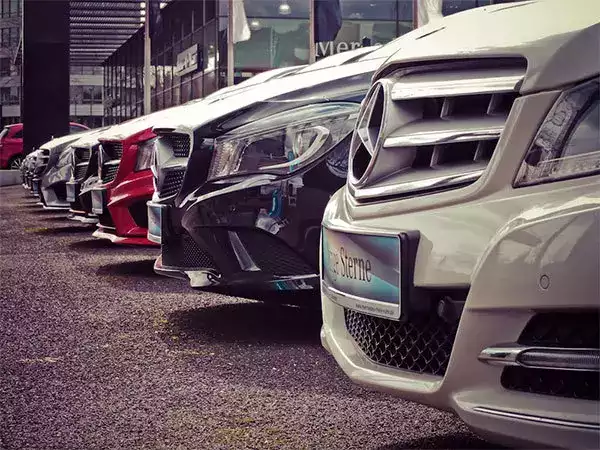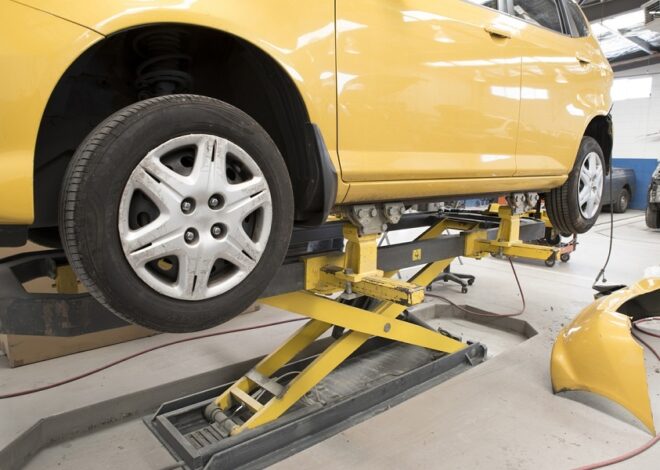
How Artificial Intelligence is Revolutionizing the Auto Industry
Artificial intelligence (AI) is transforming industries across the globe, and the automotive sector is no exception. From self-driving cars to predictive maintenance, AI is revolutionizing the way vehicles are designed, manufactured, and operated. With the rapid development of machine learning algorithms, advanced sensors, and data analytics, the auto industry is leveraging AI to enhance safety, improve efficiency, and deliver a better driving experience. In this article, we will explore how AI is reshaping the automotive landscape and what it means for the future of mobility.

The Role of AI in Autonomous Vehicles
One of the most groundbreaking applications of AI in the auto industry is autonomous driving technology. Self-driving cars rely on AI systems to process vast amounts of data from sensors, cameras, and radar to make real-time decisions on the road. AI-powered algorithms enable these vehicles to interpret their surroundings, identify obstacles, and navigate complex traffic conditions safely.
Key AI Technologies in Autonomous Driving:
- Computer Vision: AI systems use computer vision to detect and classify objects on the road, such as pedestrians, vehicles, and traffic signs.
- Deep Learning: Deep learning algorithms allow self-driving cars to learn from vast datasets and improve their decision-making over time.
- Sensor Fusion: AI combines data from various sensors (LiDAR, radar, and cameras) to create a detailed understanding of the vehicle’s environment.
While fully autonomous vehicles are still in the testing phase, companies like Tesla, Waymo, and Uber are making significant strides in AI-driven mobility. As the technology continues to evolve, we can expect self-driving cars to become more common, reducing human error and improving road safety.
AI in Vehicle Manufacturing and Design
AI is not only changing the way vehicles are driven but also how they are built. In automotive manufacturing, AI-powered robots and automation systems are enhancing productivity, precision, and efficiency. AI helps streamline production processes, reduce errors, and improve quality control, leading to faster production times and lower costs.
How AI is Enhancing Manufacturing:
- Predictive Maintenance: AI-driven systems monitor machinery and predict potential failures before they occur, minimizing downtime and repair costs.
- Robotics and Automation: AI-powered robots handle repetitive tasks with high precision, such as welding and painting, while reducing the need for manual labor.
- Generative Design: AI algorithms are used in vehicle design to optimize components for weight, strength, and aerodynamics, resulting in more efficient and eco-friendly vehicles.
With AI, automakers can also accelerate the design process by simulating different materials and configurations, ultimately creating lighter, stronger, and more fuel-efficient vehicles.
AI and the Driving Experience
AI is also transforming the driving experience by introducing smart features that enhance comfort, convenience, and safety. Modern vehicles are equipped with AI-powered systems that assist drivers in various ways, from navigation to accident prevention.
AI-Driven Features in Modern Vehicles:
- Advanced Driver Assistance Systems (ADAS): AI enables ADAS features like adaptive cruise control, lane-keeping assistance, and automatic emergency braking, making driving safer and reducing the likelihood of collisions.
- Voice Assistants: AI-powered voice recognition systems, such as those found in Tesla’s infotainment system, allow drivers to control vehicle functions through natural language commands.
- Predictive Maintenance Alerts: AI analyzes data from the vehicle’s sensors to predict when maintenance is needed, helping drivers avoid breakdowns and costly repairs.
As AI technology becomes more sophisticated, we can expect even more personalized and intuitive driving experiences, with cars that can learn driver preferences and adjust settings accordingly.
AI in Fleet Management and Logistics
The impact of AI on the auto industry extends beyond personal vehicles. Fleet management and logistics companies are using AI to optimize their operations, reducing costs and improving efficiency. AI-powered systems enable fleet managers to monitor vehicle performance, optimize routes, and predict maintenance needs, all while ensuring compliance with safety regulations.
AI Applications in Fleet Management:
- Route Optimization: AI algorithms analyze traffic patterns and weather conditions to determine the most efficient routes, reducing fuel consumption and delivery times.
- Driver Monitoring: AI systems monitor driver behavior, such as speed and braking patterns, to improve safety and reduce accidents.
- Telematics and Predictive Analytics: AI-driven telematics systems collect data from vehicles to predict maintenance needs and identify potential issues before they become serious.
With AI, fleet operators can reduce downtime, lower fuel costs, and improve the overall safety and efficiency of their operations.
The Future of AI in the Auto Industry
The role of AI in the auto industry is only expected to grow in the coming years. As technology continues to advance, we can anticipate further innovations in autonomous driving, vehicle design, and the driving experience. AI will also play a key role in the shift toward electric vehicles, enabling more efficient battery management and optimizing energy consumption.
What to Expect in the Future:
- Level 5 Autonomy: Fully autonomous vehicles with no need for human intervention are the ultimate goal, and AI will be at the heart of this transformation.
- Smart Cities: AI will enable vehicles to communicate with smart infrastructure, optimizing traffic flow and reducing congestion.
- Sustainability: AI will continue to drive advancements in electric and hybrid vehicles, making transportation more eco-friendly.
Conclusion: AI’s Impact on the Automotive Future
Artificial intelligence is revolutionizing the auto industry by enhancing every aspect of vehicle design, manufacturing, and operation. From self-driving cars to advanced safety features, AI is creating smarter, safer, and more efficient vehicles. As AI technology continues to evolve, the future of the auto industry promises to be more exciting and innovative than ever, with AI leading the charge toward a new era of mobility.



